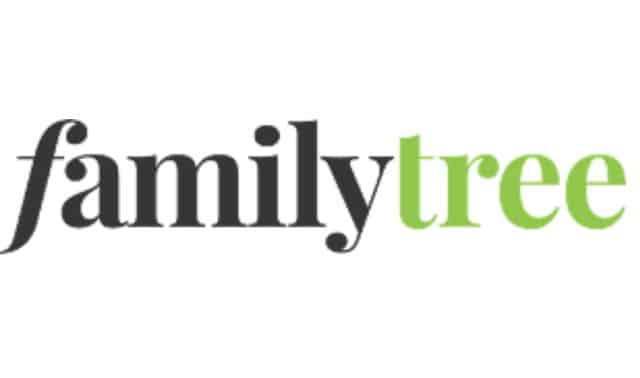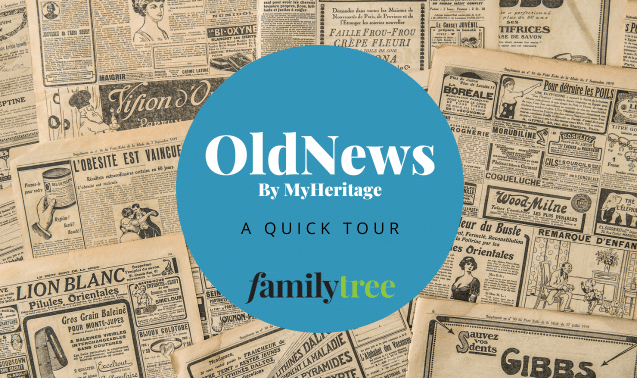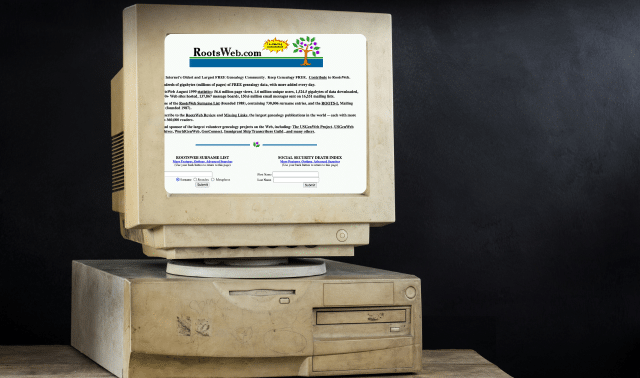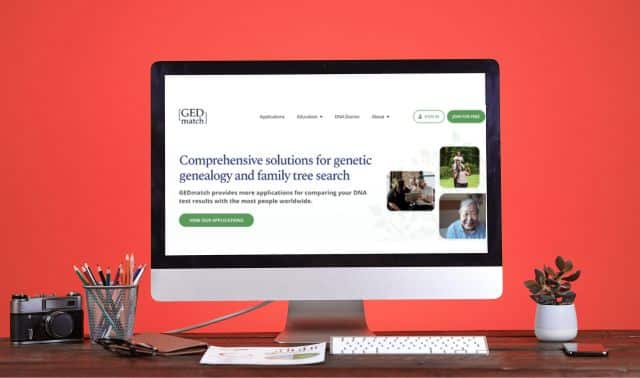
Ancestry.com has become the Goliath of online genealogy. With millions of digitized records, thousands of databases and a presence (through ads or links) on practically every other family history website in existence, this genealogical giant dwarfs the competition—so much so that some researchers don’t even realize it has competition.
But the truth is Ancestry isn’t the only place to spend your online dollar. In fact, a number of genealogical Davids—that is, smaller and upstart sites—are also aiming to get your business. These “little guys” (at least comparatively speaking) offer some of the same record collections as Ancestry.com, as well as unique resources you won’t find in its colossal collection. Whether you’re seeking a source for obscure records or simply an Ancestry alternative, we recommend giving these lesser-known subscription sites a shot.
1. Accessible Archives
County histories usually include biographies of local residents, and Accessible Archives makes 92 rare county histories from the Mid-Atlantic states accessible online. Search for a name anywhere in county histories from Maryland, New Jersey, New York and Pennsylvania, and you could discover priceless details about your ancestor.
In addition to county histories, Accessible Archives includes a collection of magazines and newspapers. Its 18th- and 19th-century Pennsylvania newspapers and 19th-century African-American newspapers list marriages, obituaries and biographical data. Civil War-era newspapers give firsthand accounts of the conflict. And Godey’s Lady’s Book provides insight into women’s lives in the 1800s.
2. American Civil War Research Database
Drawing on state rosters, pension indexes, regimental histories, Rolls of Honor, photographs and other sources, Dick Dobbins and his crew created the American Civil War Research Database. It’s a great tool for identifying a soldier’s dates of service and unit—the information you need to request copies of a soldier’s service and pension files from the National Archives and Records Administration.
Although Ancestry.com’s version of the database, called the Civil War Research Database, is up to date as of May 2007 with more than 4 million records, this standalone version will continue to be updated much more often.
3. GenealogyBank
This site provides access to newspapers, obituaries, and historical documents and books:
- Historical Newspapers, 1690-1977: View images of more than 500,000 issues from 1,300-plus old US newspapers held by the American Antiquarian Society. This is a tremendous tool for finding newspaper references to your ancestors in the 1700s and 1800s, even if you don’t know where they lived.
- America’s Obituaries, 1977 to present: These 23.2 million obituaries come from more than 800 US newspapers. Most date from 1999 and later.
- Historical Books, 1801-1900: Search the full text of 11,000 books, pamphlets, genealogies, biographies, local histories, cards, charts and funeral sermons. The latter seem to dominate this unusual set, also from the American Antiquarian Society.
- Historical Documents, 1789-1980: The primary resources here are the American State Papers (1789 to 1838) and genealogical content from the US Serial Set (1817 to 1980). (But don’t subscribe just for these two resources: They’re also on the Library of Congress’ American Memory site
So far, the site’s major draw is the Historical Newspapers collection, which you also can access through the New England Historic Genealogical Society, the New York Genealogical & Biographical Society and the Godfrey Memorial Library—but not Ancestry.com.
4. Genealogy Today
Genealogists would probably find nontraditional sources such as criminal records and club memberships extremely useful—if they were more accessible. Family Tree Connection, the largest of several databases on the Genealogy Today site, aims to do just that. Its index covers high school and college yearbooks, city directories, fraternal organizations, church records and other sources. Many more documents published between 1830 and 1930 are in the pipeline. To get an idea of Family Tree Connection’s scope, go to the Genealogy Today home page and click on Library Catalog to search or browse.
Thousands of names are added to Family Tree Connection every week. Subscribe to the free Surname Tracker service and you’ll be notified by e-mail whenever a name you’re researching turns up. Genealogy Today’s name index is free.
5. Godfrey Memorial Library
A private library in Connecticut focusing on genealogy and history, the Godfrey Memorial Library lets you register for a Godfrey Scholar library card no matter where you live. Benefits of membership include access to these online newspaper collections:
- Accessible Archives: newspapers, but not the county histories
- Early American Newspapers: the same great collection of newspapers from the American Antiquarian Society dating back to 1690
- The London Times Digital Archive 1785-1985: 200 years of Britain’s premiere newspaper.
- NewsBank: 1,400 US and foreign titles, plus America’s Obituaries (same as on GenealogyBank) and the Chicago Tribune Historical Archive, which covers 1860 to 1984.
- NewspaperArchive.com: 1,743 fully searchable US and foreign papers dating back to 1759
6. National Genealogical Society
While maintaining its focus on providing education, fostering scholarly standards and promoting access to genealogical records, the National Genealogical Society (NGS) has added several important members-only databases to its Web site:
- Family Bibles: 94,000 names linked to images of the original Bible pages
- Marriage and death notices: from the National Intelligencer newspaper, dating from 1800 to 1850
- Member ancestry charts: indexed and digitized ancestor charts submitted by members between the 1960s and 1995, totaling more than a million names
7. American Ancestors
You used to have to travel to Boston to use the New England Historic Genealogical Society’s (NEHGS) outstanding research library. Now membership gives you online access to many of the library’s key resources.
- Massachusetts Vital Records: Birth, marriage and death records date back to Colonial times. Most of the 8.5 million entries from 1841 to 1910 link to images of the original records.
- New England Historical and Genealogical Register: Published since 1847, this journal has articles on New England families, especially in the Colonial period.
- The Search for Missing Friends: Irish Immigrant Advertisements Placed in The Boston Pilot 1831-1920: Check this database for your Irish immigrant ancestors, and you might learn their date of immigration, their hometowns in Ireland and the names of family members. (Boston College’s similar free database, Information Wanted, is far less comprehensive.)
- Cemetery databases: The site’s gravestone transcriptions cover 1,650 cemeteries in New England, New York and eastern Canada.
- The Great Migration Begins: Immigrants to New England 1620-1633, Volumes I-III: These comprehensive profiles of passengers and their families cover the first large wave of immigration into New England.
- Early American Newspapers Series I, 1690-1876: This is the same excellent resource available through GenealogyBank, the New York Genealogical & Biographical Society and the Godfrey Memorial Library.
8. New York Genealogical & Biographical Society
in 1869, the New York Genealogical and Biographical Society maintains a library of 75,000 books, 30,000 manuscripts, 1,300 periodicals and 22,000 microforms. Besides New York state genealogy and local history, it has significant holdings for the New England states and New Jersey.
In order to make its holdings available to members everywhere, the Society has created an “eLibrary” to house digitized versions of its paper holdings. The first additions to the eLibrary (42 cemetery files and 44 religious files) were drawn from the society’s large collection of New York state cemetery and church record transcriptions.
Other key online resources include digital images of the society’s journal, The New York Genealogical and Biographical Record, from 1870 to 1960, and its annual indexes, as well as the Early American Newspapers collection from the American Antiquarian Society that’s available on various subscription Web sites.
While it still has only a small fraction of the society’s brick-and-mortar library, the eLibrary is a big enticement for potential members who can’t make it to the New York City headquarters.




